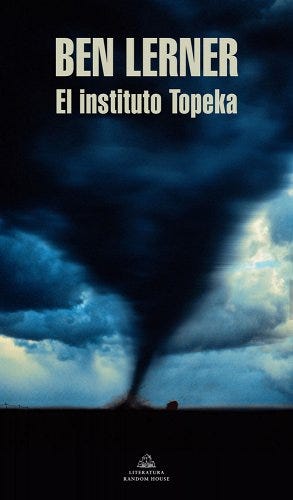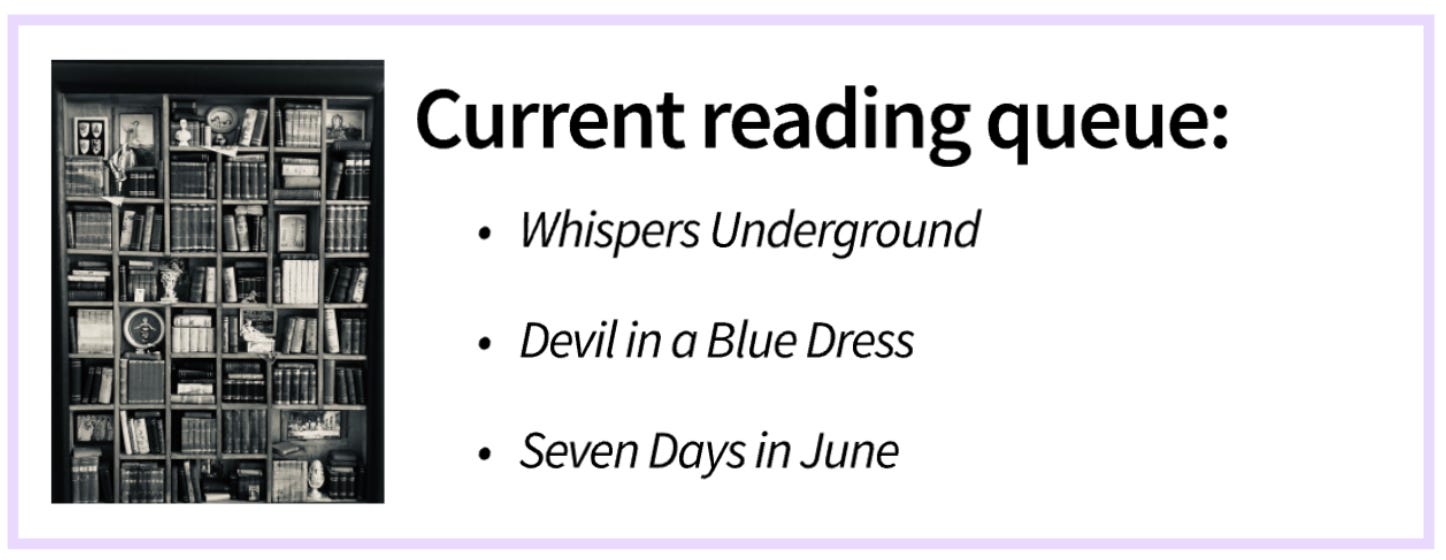Confession: I debated including this week’s book. An internal debate only, as you might be shocked to know that there’s not a massive staff here at your favorite book newsletter and the cat didn’t have an opinion. (Also forgive that gratuitous assumption that this is your favorite, but really, how many book newsletters are you reading?) I debated because - why share a book I didn’t love? Whom does that help?
Where I ended was - there are things about The Topeka School that smart readers will really enjoy, even if I myself didn’t end up loving the book. But most reviewers, many of my smart friends, and the Pulitzer Committee did, so you might!
Power summary: Told from the various perspectives of Adam, his father, and his mother, at various points in their lives, The Topeka School is a story of a Midwestern family grappling with the realties of life (infidelity, identity, abuse) but also is a story of how we as a culture have gotten to where we are.
Not for Me:
I really wanted to like The Topeka School but ultimately found it a little trudging and, while ambitious and literary, not fully in on its own critique. Specifically:
The book thematically tackles the darker sides of stereotypical masculine behavior, the rage and the dominance and the desire to be acknowledged as the smartest person in the room. The book opens in a boat with the main character, a teen speech and debate master, monologuing and then realizing his girlfriend has at some point slipped overboard and swum to shore without him noticing. There are critical echoes of this scenario throughout the book.
But for me, the book itself didn’t fully give into this critique and sometimes even felt like a meta-monologue from a smart author to just … talk the reader to death, to use the debate style it describes of essentially pummeling the opponent with too much information at an unbeatable rate. Which - is that the point? Maybe? If so, it is impressive but for me, not enjoyable or compelling.
My smart friend Jill did like the book but described parts of it as “okay, Ben Lerner, we get it, you’re soooooo smaaaart” and that’s how I felt throughout - that the author wanted as much to use his prose as a barrier or speed bump to keep you at arm’s length, to dominate, as much as he wanted to draw you in. (Like, using the word “prosody” once in a book is a bit much, but using it three times must just be a childhood wound, Ben. Think on it.)
And while it’s admittedly neither useful nor fair to critique a book for what it isn’t, I read a lot of reviews that described it as “exploring the roots of male rage and the preview of the far right,” which - yes please, let’s do this! But I felt it was more of an experience and inspection of that, rather than a dissection of the roots or a commentary on it (which I would have found more interesting.)
Maybe for You?
Okay, what I did appreciate is how incandescently wordy and alive with language it was. Sometimes annoyingly so, for me, but certainly never without admirable flair or verve. Not to mention that above all, this was a book about language, and speaking, and words. Fascinating and heady, even if sometimes I was grimly checking just how many pages I had left.
Also, the structure was impressively ambitious in its mixing of narrative reliability, of multiple narrators spanning multiple time periods. I read this in an unusual span of time where I could only tackle a few pages at a time, and I think this would benefit from being read in a more dedicated fashion, to allow the overlapping POVs flow like waves of writing in a nod to the debate themes running throughout the book.
And like I said - the topic of potentially disaffected young men becoming disconnected older men, without becoming a “toxic masculinity” apologia, is really interesting and would be a thought-provoking evolution of the late 90s/early ‘00s Jonathans (Franzen, Lethem, Safran Foer.) For me the plane didn’t totally land but I’m open to the thought that it does for other readers.
So it comes down to you! Do you side with most critics, Barack Obama, and the Pulitzers? Or was it a letdown for you as well? Let me know in the comments!
In a terrifying and infuriating week, there have also been stories of unimaginable grit and courage from Ukranian citizens and leaders. This photo from The New York Times struck me and of course it’s by Lynsey Addario, a war photographer. (Her memoir, It’s What I Do, is not to be missed.) We’re all connected, and we’re all one stroke of luck away from being refugees.
A few more words:
If you were looking for a book I did like, please browse the archive! 64 other weeks of books I liked, for the most part, across just about every genre!
All links go to Bookshop.org, which supports indie bookstores. Make your book-buying money help someone other than Jeff, if you can! You can see all my past recos here.
Maybe you knew what “prosody” meant, smartypants, but I sure enough did not so just in case: it’s the patterns of rhythm and sound used in poetry or the patterns of stress and intonation in a language.





